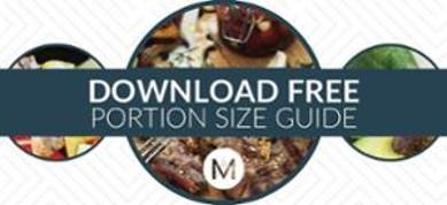Fasting is a familiar part of many cultures and has been for millennia. Due to the benefits both to your health and your mindset, the popularity of occasional fasts has remained consistent over time. We’ve even invented new fasting trends, like The Lemon Detox Fast.
But a new fast has hit the health industry by storm: water fasting. Celebrities and social media influencers tote the benefits on a regular basis, considering it to be a quick and easy way to lose weight fast.
This begs the question: Is water fasting safe for your health? And if so, how can you do it correctly?
Read on to learn just what a water fast is, why you should do it, and if you should do it.
What Is Water Fasting?
Unlike some of the more complicated fasts and detoxes out there, the water fast is simple. You consume nothing but water for 24-72 hours. Your comfort level and experience with fasting should determine how long you do it, especially the first time.
The water fast isn’t something you should jump into unprepared. There are best practices to follow both before and after to ensure optimal results, and to make the process as safe as possible.
Pre-Fast
For about three days before you plan to begin your water fast, begin to decrease your food intake. You can do this by decreasing your portion sizes progressively each day, or you can practice intermittent fasting for the three days prior to beginning the water fast. Intermittent fasting is simply choosing a set number of hours per day that you won’t consume anything but water.
Fast
Once the actual fast begins, you’ll wake up on day one and drink a big glass of water. Most water fasting participants drink about two to three liters of water per day. However, remember, you get a significant amount of water through the foods you eat. So if you feel dehydrated, increase your water intake.
Post-Fast
The most important part of the process is the post-fast period. This is because introducing too much food too quickly can be harmful. In your first day after ending the water fast, consider starting with a smoothie to get your body reaccustomed to processing solid foods. You’ll be hungry, and very ready for real food; however, stomach cramps and worse await those who visit a buffet on day one.
Stick with a smoothie, move forward with soup. The longer your water fast, the longer you’ll need to reintroduce your body to solid foods.
This isn’t only about discomfort. Some individuals may be at risk of re-feeding syndrome, especially following a longer water fast. This occurs when the electrolyte balance becomes disrupted due to changes during the fasting process. The digestive process changes, and when you return to solids too quickly, you can disrupt the delicate balance.
Symptoms can include fatigue, inability to breathe, heart failure, and even seizures. It’s important to seek medical help if you experience these symptoms post-fast.
What Are The Benefits?
There are many benefits to occasional water fasts. The large majority of people embark on this process to lose weight. However, there are health benefits as well. Here are a few of the positive effects that you may see after a water fast.
- Increased insulin sensitivity
- Lower blood pressure
- Lower cholesterol and triglycerides
- Starve the growth of cancer cells
Water fasting can also promote a body process called “autophagy.” Autophagy is your body’s cell recycling system. If your body were a neighborhood, you can think of old cell parts as full recycling bins in front of every house. The longer those parts sit outside and more begin to accumulate, the more cluttered the street gets.
Autophagy is the recycling truck that comes by, picks up the old parts, breaks them down, and disposes of the true waste while putting reusable parts to good use.
Why is this important? The more cluttered your street with garbage, the more likely you are to get rats. In your body’s case: cancer.
What Are The Risks?
Water fasting, even with the impressive benefits, isn’t without risk. Most of the risk factors can be negated through common sense; so read through this list before you consider starting a water fast.
- You can lose more than just fat. This one is impossible to mitigate since you can’t choose where your body sources its fuel; but since a water fast is very brief, this isn’t likely to cause any long term side effects. If you have been working hard on building significant muscle mass, just know that a water fast may burn up some of that hard-earned muscle.
- You may become dehydrated. It may seem counterintuitive, but you can develop dehydration while on a water fast. Depending on your diet, up to 30% of your water intake can come from the foods you eat. By limiting your food intake, you’re decreasing the amount of water you take in each day. If you feel dehydrated (headache, constipation, dizziness, nausea) simply drink more water.
- You may experience orthostatic hypotension. This is the headrush you sometimes experience when getting up quickly, or bending down to pick something up off the floor. Caused by a drop in blood pressure, orthostatic hypotension can occur more during a water fast, so just be careful when sitting or standing quickly.
Who Should Not Do This?
While the health benefits are great, there are people who should never attempt a water fast. If you have gout, avoid this fast. Consuming only water for days at a time can actually increase the production of uric acid, which increases your risk of a gout attack.
If you suffer from diabetes (either type), do not attempt a water fast. The changes in insulin sensitivity and blood sugar levels aren’t safe for people with this condition and can increase negative side effects of the disease.
Obviously, pregnant women should not partake in a water fast; your developing baby needs all the nutrients they can get. Last but certainly not least, if you have any type of eating disorder, will you likely be drawn to a water fast. Do not do it. This kind of extreme deprivation will only feed into the disorder, possibly pulling you in deeper.
Feel Your Best Everyday
Water fasting can have impressive health benefits. However, if not approached in a responsible way, negative side effects can occur. Be smart, read the guidelines in this article, and you’ll have a successful fast.
If you seem to fall into a high risk category and shouldn’t do a water fast, consider intermittent fasting, which is safe for everyone.
For more tips on losing weight and improving your overall health, download our portion size guide. This guide teaches you how much protein, carbs, and fats to enjoy for each meal without overdoing it.






